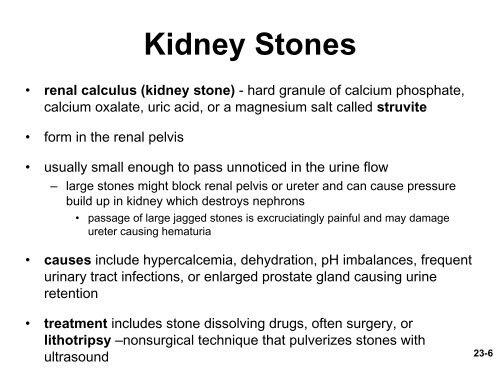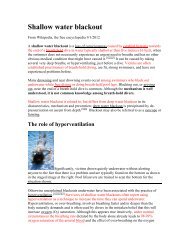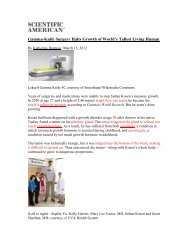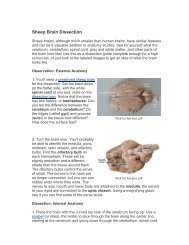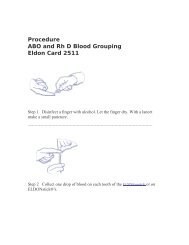Urinary Bladder
Urinary Bladder
Urinary Bladder
Create successful ePaper yourself
Turn your PDF publications into a flip-book with our unique Google optimized e-Paper software.
Kidney Stones<br />
• renal calculus (kidney stone) - hard granule of calcium phosphate,<br />
calcium oxalate, uric acid, or a magnesium salt called struvite<br />
• form in the renal pelvis<br />
• usually small enough to pass unnoticed in the urine flow<br />
– large stones might block renal pelvis or ureter and can cause pressure<br />
build up in kidney which destroys nephrons<br />
• passage of large jagged stones is excruciatingly painful and may damage<br />
ureter causing hematuria<br />
• causes include hypercalcemia, dehydration, pH imbalances, frequent<br />
urinary tract infections, or enlarged prostate gland causing urine<br />
retention<br />
• treatment includes stone dissolving drugs, often surgery, or<br />
lithotripsy –nonsurgical technique that pulverizes stones with<br />
ultrasound<br />
23-6


